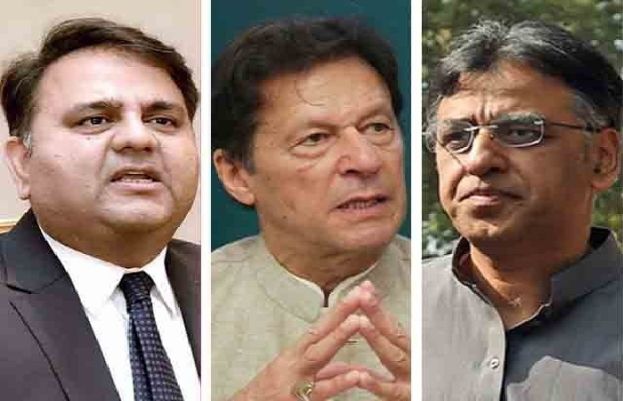The Election Commission of Pakistan (ECP) on Tuesday issued bailable arrest warrants for Pakistan Tehreek-e-Insaf (PTI) chief and former premier Imran Khan for failing to appear before the commission.
Similar arrest warrants were also issued against senior PTI leaders Asad Umar and Fawad Chaudhry.
The applications seeking exemption from attendance were rejected by the ECP, while all three parties have also been ordered to submit bonds worth Rs50,000 each.
According to details, the ECP has issued the warrants due to the failure of the concerned parties to appear before the commission in relation to the contempt proceedings being pursued against them.
On Tuesday last week, the Supreme Court of Pakistan had allowed the Election Commission of Pakistan (ECP) to continue its proceedings against PTI Chairman Imran Khan, and his party leaders Asad Umar and Fawad Chaudhry in contempt case filed against them over controversial remarks against the electoral body.
A three-member bench headed by Chief Justice Umer Ata Bandial and comprising Justice Ayesha A Malik and Justice Athar Minallah heard the ECP’s petition.
Last year, the top electoral body initiated contempt proceedings against the PTI leaders for allegedly using foul language against Chief Election Commissioner Sikandar Sultan Raja and ECP. It has served several notices on them, asking them to appear in person and explain their point of view.
However, the PTI leaders did not appear before the ECP and later challenged its powers to initiate contempt proceedings under Section 10 of the Election Act 2017 in different high courts
The ECP in its six petitions had urged the top court to transfer all its contempt cases against PTI leaders from different high courts to a single one.
The commission maintained that it had issued contempt notices to PTI chairman and deposed premier Imran Khan as well as other party leaders including Asad Umar, Fawad Chaudhry in the months of August and September
In set of petitions, the ECP argued that the high court orders were illegal and unlawful having effectively suspended Section 10 of the Elections Act, 2017, by restraining the ECP from taking ‘adverse action’ against PTI leaders.
Contempt case: ECP issues arrest warrants for Imran Khan, other PTI leaders

